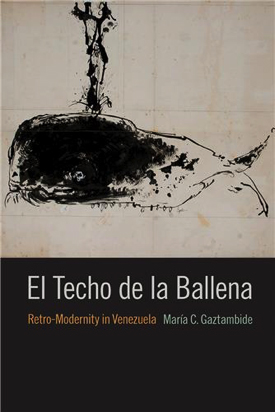|
Administration & Finance / News / News ReleaseFOR IMMEDIATE RELEASE Saira Treviño UH's Maria C. Gaztambide Examines Power of Art in Resisting Inequality in Venezuela
Houston, Jan. 24, 2019 —Rebellion and protest often define history, which in turn tends to repeat itself thereafter, leaving behind lessons to be learned. In her newly published book titled "El Techo de la Ballena: Retro-Modernity in Venezuela," María C. Gaztambide, director and chief curator of the Public Art of the University of Houston System, details the historical and social contexts that shaped this collective of radicalized artists and intellectuals in 1960s Venezuela. Located in Caracas, the capital of that politically turbulent Latin American country, the book showcases and examines how El Techo de la Ballena (The Roof of the Whale) used the visual arts to expose the depths of injustice hidden beneath the surface of Venezuela's rapid and outwardly focused modernization. Relative to more politically-neutral art movements such as geometric abstraction, promoted by certain factions within the Venezuelan elites, El Techo de la Ballena proposed a backward — a retrograde — modernity, Gaztambide argues. Its artists turned against the norm by incorporating anachronistic postures, primeval symbols, colonial Latin American print culture, and "guerilla" art tactics. They created art that reflected not the technological utopia promised by petroleum-driven capitalism but rather the gritty reality of the vast Venezuelan underclasses without access to the structures of modernity. "Much of the popular disillusionment that we see today in Venezuela is not new," Gaztambide said. "A tradition of leftist leaders who have assumed power through discourses purporting to improve the social conditions of large sectors of the population has its roots in the 1950s and 1960s. Yet now, as then, there is the perception that the government and its leaders have sold out their populist ideals in exchange for massive personal gain." Today, as Venezuela faces another succession of sociopolitical changes, El Techo de la Ballena can serve as a reminder of the power of art in resisting present circumstances and achieving tangible changes in society. According to Gaztambide, art in general has historically called attention to inequality and the false promises that have often been put in place by those holding power, serving as a means of self-expression and of effecting more democratic societal changes. "El Techo De La Ballena: Retro-Modernity In Venezuela" is an illustrated edition published by the University of Florida Press. About the University of HoustonThe University of Houston is a Carnegie-designated Tier One public research university recognized by The Princeton Review as one of the nation's best colleges for undergraduate education. UH serves the globally competitive Houston and Gulf Coast Region by providing world-class faculty, experiential learning and strategic industry partnerships. Located in the nation's fourth-largest city, UH serves more than 46,300 students in the most ethnically and culturally diverse region in the country. |